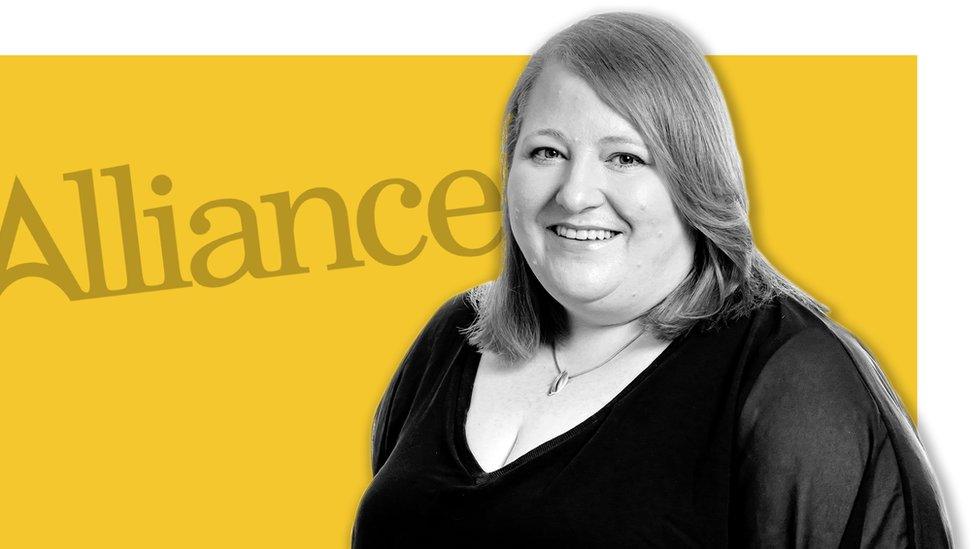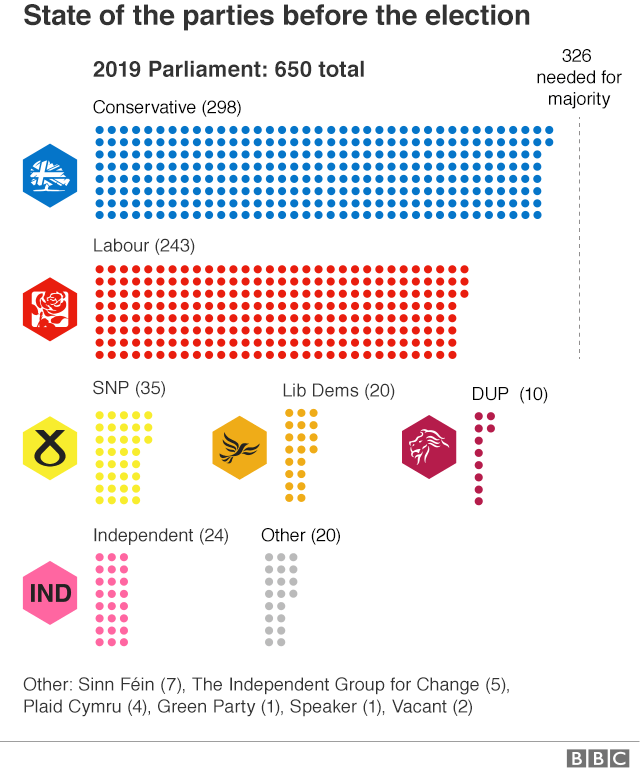General election 2019: A simple guide to the Alliance Party
- Published

The Alliance Party lost the only Westminster seat it had in 2015, when Naomi Long failed to retain it.
She managed a shock win in 2010 to take the East Belfast seat off the Democratic Unionist Party (DUP), defeating then leader Peter Robinson.
Alliance also has eight MLAs (members of the Northern Ireland Assembly) and one MEP.
Who is the leader?
Naomi Long has been in charge of the party since 2016.
Until May 2019, she represented East Belfast in the Northern Ireland Assembly but stood down from the role after she was elected to the European Parliament.
Five key election pledges
The Alliance Party's main manifesto pledges include:
Backing a people's vote and protecting the economy from no deal
Hold urgent talks to restore power-sharing led by an independent mediator
Invest in health care, education and skills
Strong support for integrated education
Supports the voting age being lowered to 16


Where does it stand on Brexit?
The party is staunchly pro-European.
During the EU referendum campaign in 2016, the party strongly advocated for remain - and has since called for Northern Ireland to be allocated some form of special status - which would allow it to remain closely aligned to the EU in certain areas.
Naomi Long has described Boris Johnson's Brexit deal as "the worst of both worlds" and wants the deal to be put to another referendum.
In this election, Alliance is refusing to stand aside in any constituencies to help other pro-remain candidates, arguing that pacts are anti-democratic - but other pro-remain parties have called on Alliance to reconsider.
If you are reading this page on the BBC News app, you will need to visit the mobile version of the BBC website to submit your question on this topic.
What else does it stand for?
The party is liberal and describes itself as progressive.
It allows its members a conscience vote on social issues, but in recent years changed its stance to wholly support same-sex marriage.
Alliance Party policy in a tweet
Allow X content?
This article contains content provided by X. We ask for your permission before anything is loaded, as they may be using cookies and other technologies. You may want to read X’s cookie policy, external and privacy policy, external before accepting. To view this content choose ‘accept and continue’.

What is the Alliance Party's history?
The cross-community Alliance Party was set up in 1970 and has long been Northern Ireland's fifth-largest party overall.
It was formed in response to the rapidly worsening violence taking place, known as the Troubles, and originally represented moderate and non-sectarian unionism - but over time, it has come to represent wider liberal and non-sectarian concerns.
In the Northern Ireland Assembly, it is designated as neither unionist nor nationalist but other.